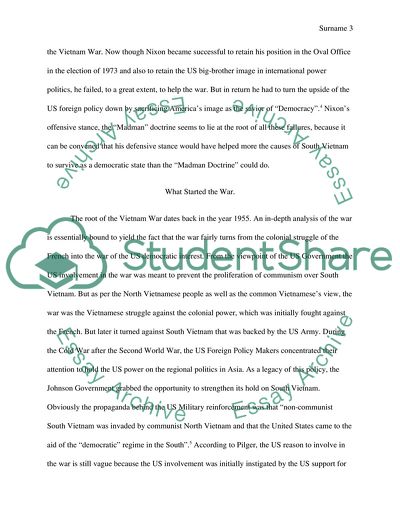Cite this document
(Richard Nixon Effects on the Vietnam War Research Paper, n.d.)
Richard Nixon Effects on the Vietnam War Research Paper. Retrieved from https://studentshare.org/history/1743600-richard-nixon-effects-on-the-vietnam-war
Richard Nixon Effects on the Vietnam War Research Paper. Retrieved from https://studentshare.org/history/1743600-richard-nixon-effects-on-the-vietnam-war
(Richard Nixon Effects on the Vietnam War Research Paper)
Richard Nixon Effects on the Vietnam War Research Paper. https://studentshare.org/history/1743600-richard-nixon-effects-on-the-vietnam-war.
Richard Nixon Effects on the Vietnam War Research Paper. https://studentshare.org/history/1743600-richard-nixon-effects-on-the-vietnam-war.
“Richard Nixon Effects on the Vietnam War Research Paper”, n.d. https://studentshare.org/history/1743600-richard-nixon-effects-on-the-vietnam-war.


